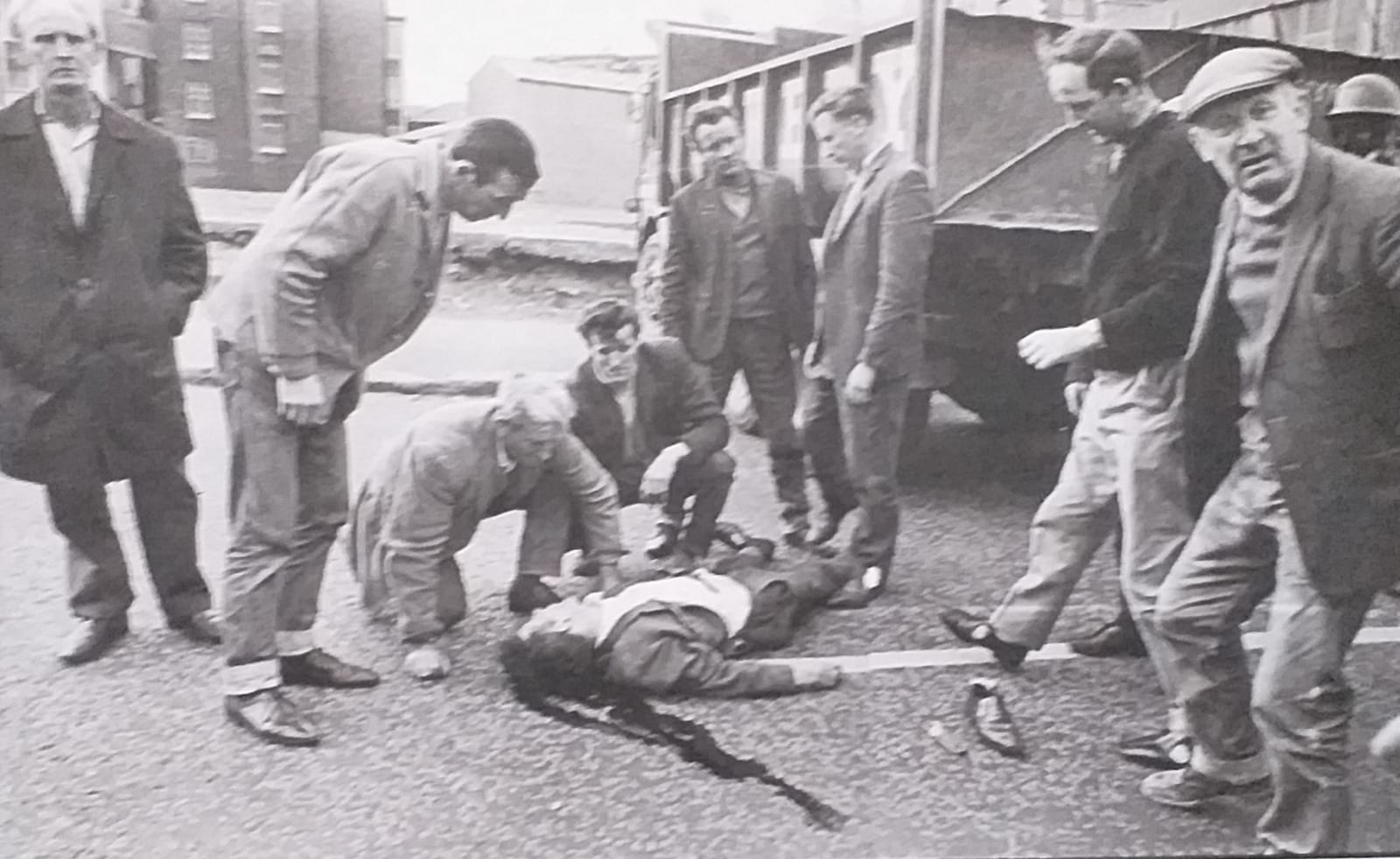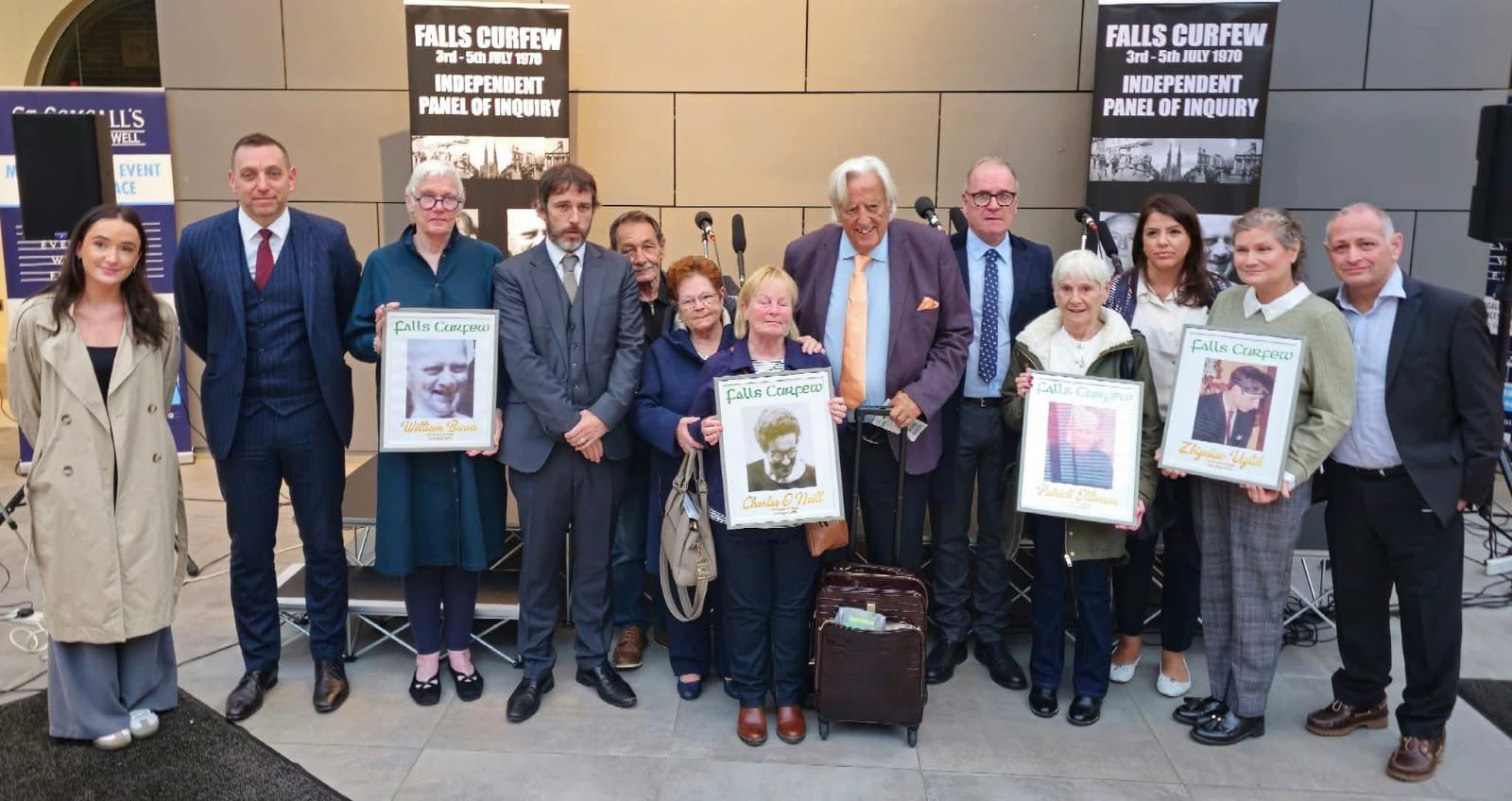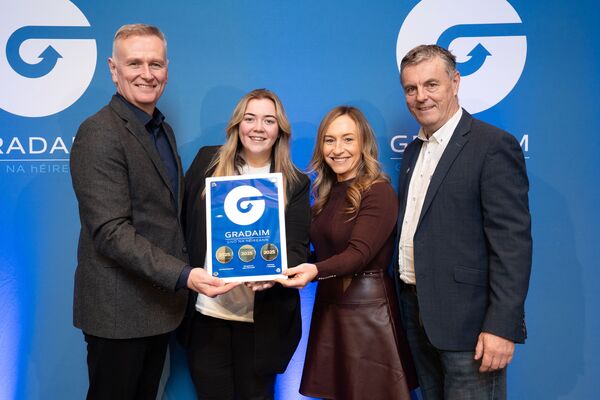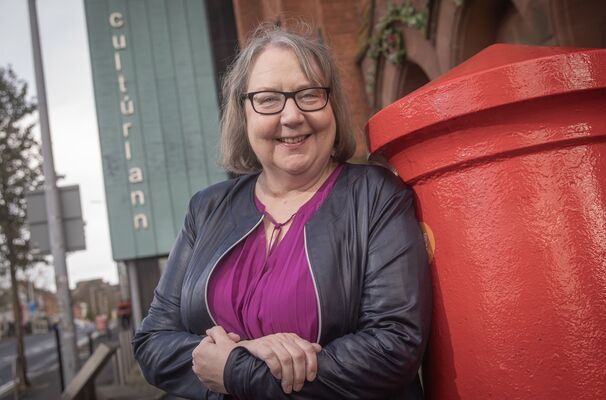THE niece of a London photographer who was shot dead in Belfast by British soldiers during the Falls Curfew in July 1970 has told an inquiry that for half a century the family had thought that the 21-year-old had been forgotten, only to discover that “others had indeed remembered him and held him in their thoughts”.
Marta Riehle-Stern was speaking at an Independent Panel of Inquiry into the Falls Curfew of July 3 to 5, 1970, when four people were shot dead by the British army. 78 people were injured, hundreds of arrests were made and countless homes raided. Marta’s uncle, Zbigniew Uglik, was the fourth person to be shot dead by the British army during a July weekend which is seared into the consciousness of the West Belfast community.
On Friday relatives of the four victims – Charles O’Neill, William Burns, Patrick Elliman and Zbigniew Uglik – read out pen portraits of their loved ones in front of an independent panel consisting of chair Michael Mansfield KC, Mariela Kohon, who has extensive experience working with victims of human rights abuses, and barrister Mark Bassett. Solicitor Pádraig Ó Muirigh and the panel then had the opportunity to ask questions of the family members.
As proceeding began, Mr Mansfield set out the parameters of the inquiry. He said it was fitting that the inquiry was taking place in St Comgall’s on Divis Street, not far from where the Troubles erupted around a year before the Curfew. He said that there had been no official inquiry into the events of the Falls Curfew but there are people alive today who can still remember what had happened. He said that the Curfew marked the end of the honeymoon period that the British army had enjoyed in nationalist areas after August 1969 and as such was of historic importance.
Mr Mansfield added that during the course of the inquiry the panel will hear evidence from those caught up in the military operation as well as from experts in ballistics. Army logs will also be admitted as evidence. The panel will examine the legal basis for the curfew, the circumstances of how those who died were killed and whether the state carried out effective investigations into their deaths.
First to deliver her pen portrait was Kathleen Cullen, who was 20 years old in July 1970. Her uncle, Charles O’Neill, was run over by a British army vehicle just before the curfew began.
A crowd gathers around Charlie O'Neill after he was run over by a British Army military vehicle
Charlie lived in Linden Street off the Falls Road with his mother, she said. Kathleen also lived in the house with her husband, son and sister. She said Charlie had left the RAF due to ill-health and always carried his discharge papers on him. He worked in St George’s Market and would return home after work carrying vegetables in his pockets for a salad. On Friday, July 3, he was making his way home from work and stood chatting to other men who had gathered “out of curiosity” to see why there was a larger Saladin military vehicle rather than a Saracen in the area.
She said Charlie stepped out waving his hands to try and calm the situation and was run over by the military vehicle which had started to accelerate. She said the soldiers removed everything from Charlie’s pockets including his RAF discharge papers.
“Charlie O’Neill’s killing was ruthless and cruel and a great loss to his entire family and especially his mother Kitty,” she said. “He was 36 years old and the first of four innocent men to be killed during the Falls Curfew.”
Monica Burns is the niece of William Burns, 54, who was the second person to be killed during the Curfew. She described William as a keen cyclist who travelled around Europe helping to build youth hostels. He lived in the family home at 57 Falls Road with his sister and two brothers. Monica said he was “a hard worker who was never without a job."
“When he worked in the family fish, poultry and fruit business he would win the Lord Mayor’s Prize for his window displays,” she continued.
On the evening of July 3 he was helping a neighbour board up a shop window because there was “a smell of trouble in the air”. The two men were standing chatting at the Burns’ family home. The bullet that killed William him passed through a door frame, through the chest of his neighbour and into William's chest.
“Rather than expressing regret for the indiscriminate firing of shots the army hastily suggested to news outlets that my uncle Billy had been throwing a petrol bomb,” said Monica, who was 13 at the time. “His sudden and brutal murder was bad enough, but the accusation which was laughable to anyone who knew him was the cause of anger and distress among all the family and beyond.”
Michael Mansfield KC, centre, Mariela Kohon and barrister Mark Bassett (Photo by Peadar Whelan)
She said the family never expected justice and were “unsurprised when it never materialised”. She said she hoped that in her brief statement that she had done “justice to who he was and what he did in life”.
She added that the inquest verdict of death by misadventure was “another torture for the family”.
Pól Wilson is the great-nephew of Patrick Elliman (62). Small in stature, Patrick was physically very strong, he said. Patrick had four children. During the Second World War he was employed in various construction and demolition projects. After the war he worked on the railways and later the docks. An O'Connell's clubman, he was a former Antrim hurling goalkeeper.
By 1970 Patrick was living with his sister Kathleen at 12 Marchioness Street. At 11pm on July 3 and with the district seemingly quiet, Patrick stepped out of the house in his slippers to get some fresh air. He was standing chatting with his brother James when a British soldier opened fire, with Paddy and James both being hit. Paddy was carried back to the house and an ambulance was called. On the short drive to the Royal Victoria Hospital, the ambulance with Paddy inside was stopped on four occasions by the British army.
“It took over half an hour to travel that short distance," said Pól. After the shooting the British army billeted themselves in number 12 Marchioness Street “and helped themselves to any food supplies that where in the house at the time”.
Patrick Elliman died on July 11 without regaining consciousness.
“It is 55 years since uncle Patrick and the other three innocent victims died at the hands of the British army. No-one has ever been held to account, no apologies or explanations provided to the family.”
Pól added that the state has a duty to be open about the events of the Falls Curfew. “[It was] a weekend that changed forever the relationship between the state and the Catholic/Nationalist population," he said. "An event so disastrous, that the course of history changed and sowed the seeds for 30 years of violence.”
Solicitor Pádraig Ó Muirigh (Photo by Peadar Whelan)
During her contribution, Marta Riehle-Stern recalled how Zbigniew Uglik’s Polish parents moved to England after the Second World War. Zbigniew’s father was arrested by the Russians at the outbreak of war and was sent to a labour camp in Siberia where he remained until 1941. He eventually fought the Nazis in a Polish division of the British army. Zbigniew was born in England in 1948 and by 1970 was working as a postman.
A keen photographer, he arrived in Belfast just as the Curfew was announced and was taking shelter in a house in Albert Street.He left the property at around 11.30pm on July 4 with the intention of returning to the Wellington Park Hotel, where he was staying, to retrieve more film for his camera. He climbed over a backyard wall and disappeared into the night. Gunshots were soon heard.
His niece Marta told the inquiry: “He loved music, photography and travel. He played guitar and had a girlfriend and spent most of his spare income on cameras and equipment, hoping to become a photojournalist.
“He was particularly drawn to Belfast where tensions between divided communities were rising.”
Marta said that after Zbigniew's death his name was blackened by unfounded claims in the British press of him being a Soviet agent operating in Belfast.
“This was particularly a cruel blow to Zbigniew’s parents who were separated by and witnessed unbearable hardship at the hands of the Soviet Union,” she said.
For decades, she added, the family thought that Zbigniew’s death had been forgotten by the wider world. “The story was too insignificant for anyone beyond or family to remember. It was only through my own research that I discovered that others had indeed remembered him and held him in their thoughts.”
She added that – tragically – this knowledge had come too late for her grandparents. She said her mother and aunt hope that the true circumstances of Zbigniew’s death will be reflected for posterity in their lifetime “so that this painful uncertainty is not left to the next generation of our family".
The Independent Panel Inquiry will resume in November.
The relatives of those who died and the Independent Panel of Inquiry







